A stark division is growing within Russia’s military ranks, where ordinary soldiers face the deadly frontlines, while the privileged few secure safer postings.
This glaring disparity has led to growing discontent, including among elite military units, who are increasingly feeling abandoned by their leadership in the protracted war in Ukraine.
Recent intelligence reports from the UK Ministry of Defence have shed light on the formation of a specialised military unit, “Bars Kaskad.”
This article is the opinion of the author and not necessarily that of the UK Defence Journal. If you would like to submit your own article on this topic or any other, please see our submission guidelines.
This unit recruits personnel from affluent, influential Russian families and places them in operations far from the frontlines, in contrast to the grim conditions faced by everyday Russian soldiers.
Tensions escalated further when soldiers from Russia’s prestigious 155th Naval Infantry Brigade went public with their grievances, accusing their commanders of treating them as mere “cannon fodder” in Ukraine. Their open letter, which was widely circulated on the social media platform Telegram, underscored the heavy losses the unit had suffered during a disastrous offensive near Donetsk.
The letter explicitly stated, “Due to the ‘carefully’ planned offensive by the ‘great commanders’, we lost about 300 people and 50 percent of our vehicles.” The blunt criticism of the leadership spread quickly across Russia, prompting the military to publicly address these concerns, a rare occurrence since the conflict’s onset.
In sharp contrast, the Bars Kaskad unit serves as a refuge for Russia’s elite. Founded by Dmitry Sablin, Deputy Chairman of the State Duma’s Defence Committee, the unit boasts members from the pro-Putin United Russia Party and sons of high-ranking Kremlin officials. Their tasks, mostly drone operations, are conducted far from the dangers of the battlefield.
Bars Kaskad, operational since October 2022, has drawn heavy criticism, with many accusing it of being a means for the elite to sidestep compulsory military service. Analysts argue that it allows members to maintain a façade of patriotism while keeping out of harm’s way, bolstering their public image and future political ambitions without taking real risks.
Ordinary Russian soldiers, meanwhile, endure the full brutality of the conflict. The stark contrast between their harsh experiences and the relative safety of the elite has become a major source of frustration within the ranks.
Military expert Ruslan Leviev explains, “Bars Kaskad is a unit created for celebrities and officials who want to show they’ve gone to war. But in reality, they’re sitting safely at the rear, drinking tea, collecting medals, and using their ‘service’ to advance their political careers.”
One high-profile example is Alexei Blinovsky, husband of Russian influencer Yelena Blinovskaya. He reportedly joined Bars Kaskad to avoid legal issues stemming from her tax evasion case, ensuring her release while keeping himself out of danger.
The use of ordinary Russians as expendable “cannon fodder” while the elite remain shielded from the risks of war underscores the deep inequalities in Russian society. As everyday soldiers face the deadly realities of the battlefield, the elite’s ability to evade danger raises questions about how long this system can last before resentment turns into open rebellion.



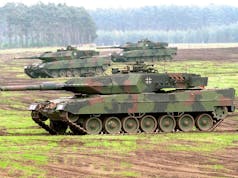
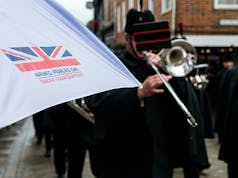
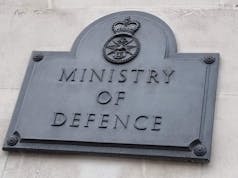

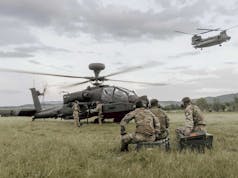

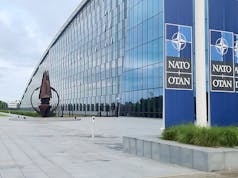
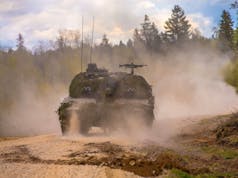

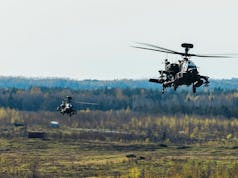

Hmm, could this be the straw that breaks the camel’s back?
The US had a similar problem in the 1960’s with the college kids being exempt from the draft. With many white middle class parents able to pay for their kids to go to college, the US army found itself with mostly people from poorer backgrounds which back then meant a significant disproportion of black kids being called up. It got so bad the senior military realised it was causing real tensions and raised the issue with the politicians and the draft rules were eventually changed…
The Russian elite will include the generals, so I don’t expect the ‘democratic’ safety valve to be triggered in Russia as it clearly does not exist. The Kremlin will only act if there is a real and visible threat of mutiny a la 1917, which so far there isn’t… Nevertheless there is a real issue here one that could seriously impact on Russian moral which can only to be Ukraine’s advantage.
The downside is that Russia could destablise even more which comes with another set of risks.
Boy do we need to rearm…
CR
Two thirds of the American KIA in Vietnam were volunteers. Blacks were likely overrepresented there as the army desegregated before much of the rest of the country.
Meanwhile rebellion in Russia is probably only what the post-Putin Tsar wannabe will have to face. IMO
Much like some characters in Blackadder in WW1. Except they met their fate in the closing, soul touching scenes.
Russia has never been troubled by high casualty rates. Its profligacy with the lives of soldiers was the main cause of the 1917 revolution. In WW2, its willingness to sustain casualties was even more brutal but justified perhaps by the Nazi taste for mass murder.
Ukraine is a war of choice not a matter of national survival. And just as the USA found in Vietnam, persuading people to risk their lives in a war of choice is difficult. The key question is how long natural Russian patriotism will tolerate the huge losses suffered in Ukraine. The losses in 10 years of fighting in Afghanistan were a significant factor in the collapse of the Soviet Union. Putin may control mass media but there are now other sources of information, so it is harder to conceal the truth. Whilst Putin’s control is considerable, it is far less omnipotent than that of the Communist era. His position may become very precarious if he can’t end the war with a claim of some success.
While Russia functions as a de facto dictatorship the system can last for a very long time, just as it has in the past. When you’re facing a regime that doesn’t really care about inflicting civilian casualties, a successful rebellion requires the involvement of people who are both organised and suitably resourced to overpower the state’s loyalists.
Putin is willing to pay mercenaries. Ukraine says it has come across black Africans, North Koreans, Chinese + Middle Eastern people in Russian uniforms. They are the ones that Russia is using as “canon fodder”.